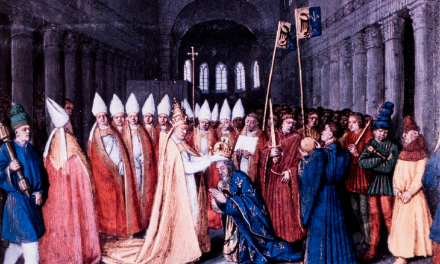My head is spinning. Just want to get a two things out there…
First, we have a humble Pope. Consider:
- Took the papal motto: “Lowly but Chosen”
- “May God forgive you,” he jokingly told cardinals after his election
- Breaking tradition, he began his engagement with his people by asking them to pray for him and to pray for his predecessor
- Choose the name “Francis” which is a clear message about wanting to bring humility back to the papacy
- Rather than living in a lavish mansion and being driven around town, his chose to live in a humble apartment and take the bus to work
- He cooks his own meals
- Son of an immigrant railway worker
- Once visited an AIDS hospice and washed the feet of the patients there–imitating the servant leadership of Jesus
- Anti-clericalism and careerism–once lambasted some of his priests for refusing to baptize some children born out of wedlock
Second, we have a really sort of amazingly Magenta Pope who will utterly resist our liberal/conservative, red/blue categories. Yes, he has traditional views about topics like abortion (he apparently said that “abortion is the death penalty for the unborn”), but consider:
- The choice of the name of Francis here is unmistakable–he will continue to be a friend of the poor and make this a priority
- Friendly with liberation theology and Catholic Social Teaching–he is certainly not a Paul Ryan pope
- Told his people not to come to fly to see him, but instead use that money to give to the poor
It is also amazing to think about a Jesuit pope (he has apparently has master’s degree in chemistry from the University of Buenos Aires!) who took the name Francis. Will he be able to work toward healing divisions of the Church?




Some other tidbits that were revealing:
–Did not wear mozetta
–Began his address with… humor!!
–Spoke only about being the bishop of Rome
Seems like the real deal on humility.
Oh, and I like the chemistry/theology combo (says the undergrad double major in chemistry and religion!)
Charlie: Great piece here and in this week’s The Tablet (March 16, 2013), p. 11. When The Tablet asked us for our reflections last week, before we knew who the new pope would be, about what his character should be like and what his priorities should be, here is what I wrote (obviously lifting the “magenta” reference from you even before you posted this), which was trimmed down considerably in The Tablet:
As a lay moral theologian, I hope the next pope will be pastorally sensitive, intellectually informed, and genuinely guided by the Spirit and example of Jesus Christ. Servant of the whole Church, the coming Bishop of Rome should work collegially with his fellow bishops and others worldwide. May he, like St. Peter, humbly say, ‘Stand up; I am only a mortal’, and just as the Apostle realized that the gift of the Holy Spirit can be ‘poured out even on the Gentiles’, may the new pope hospitably engage in constructive dialogue with all others without prejudging ‘anyone profane or unclean’ (Acts 10:26, 28, 45, NRSV).
His priorities should include addressing more clearly the grave evils we face rather than only the intrinsic evils, though the two sometimes overlap. Like his predecessors John Paul II and Benedict XVI, he should continue to inspire Catholics and others to be greener and to care for creation, but he should also encourage Catholics in nations such as the U.S. to be more magenta rather than partisan red (Republican) or blue (Democrat). He should remind Catholics that we are, first and foremost, followers of a Lord who said, ‘Blessed are the peacemakers, for they will be called children of God’ (Matt 5:9). He should enable Catholics to participate intelligently in the Mass and to connect what we experience and do there with everyday life, thereby informing and forming us to ‘love and serve the Lord’ by defending human life consistently against all threats, including unjust war, toxic wastes, abortion, euthanasia, climate change, the international and domestic proliferation of weapons and firearms, lack of access to affordable healthcare, and more. Indeed, may he continue to promote respect for the dignity of all human life, including those who are guilty of serious crimes against the innocent, so that more is done both to care for victims and to establish restorative criminal justice systems without the need for capital punishment.